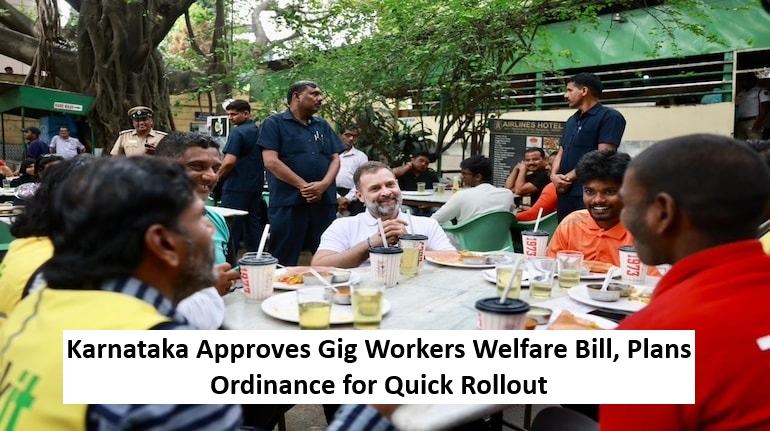
On April 11, the Karnataka cabinet approved the Karnataka Platform-Based Gig Workers (Social Security and Welfare) Bill, 2024, which seeks to establish a social security framework for gig economy workers. The government intends to implement the bill through an ordinance.
Aimed at platforms like Swiggy, Zomato, Ola, Uber, Amazon, and others, the bill mandates a welfare fee of 1% to 2% on every transaction or payout made by these companies to gig workers. The collected fee will fund a welfare scheme covering a range of social security benefits.
Creation of Karnataka Gig Workers Welfare Board
The proposed legislation will also establish the Karnataka Platform-Based Gig Workers Welfare Board. This body will be responsible for managing the welfare fund—collecting, overseeing, and distributing benefits to eligible gig workers and their dependents.
Speaking to the media, Law and Parliamentary Affairs Minister HK Patil confirmed that the ordinance would be introduced soon to bring the bill into effect without delay.
Phased Rollout of Benefits for Gig Workers
The bill outlines a phased introduction of social security measures, which include:
Accident and natural death compensation
Funeral assistance
Maternity benefits
Educational support for children
Provident fund
Housing support
Skill upgradation
Old age assistance
Though exact figures are unavailable, a NITI Aayog report from 2022 estimates that around 2.3 lakh gig workers in Karnataka are employed across food delivery, ride-hailing, and e-commerce platforms.
Mixed Reactions: Support from Workers, Concerns from Industry
The bill follows a meeting between Chief Minister Siddaramaiah and Congress leader Rahul Gandhi in Delhi. Initially delayed due to internal disagreements within the cabinet, the bill was finally approved amid mounting discussions on worker rights.
While gig worker unions have welcomed the bill as a step toward worker dignity and protection, industry groups like NASSCOM and IAMAI have voiced concerns. They argue that certain provisions could impact aggregator business models and deter ease of doing business in Karnataka.
Read More: When Cricket Entered the Courtroom Why Justice Surya Kant Referenced Jasprit Bumrah

 Share
Share



